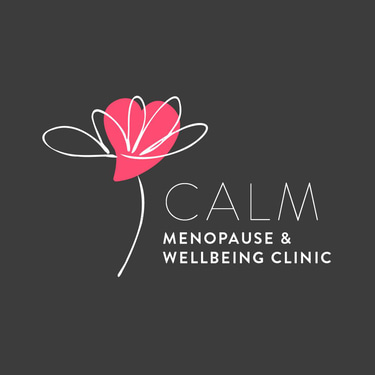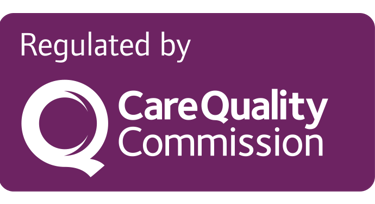Exploring Alternative Therapies for Perimenopause and Menopause Symptoms
7/4/20253 min read


Introduction to Alternative Therapies
As women progress into the transitional phases of perimenopause and menopause, they often encounter a myriad of symptoms such as hot flushes, mood swings, aching joints and sleep disturbances to name but a few of the symptoms. While hormone replacement therapy (HRT) has been a conventional approach to alleviate these symptoms, many women seek alternative therapies if HRT is contraindicated such as post breast cancer. Some patients just don't want to take HRT for personal reasons. This blog explores various alternative therapies that can effectively ease the discomfort associated with perimenopause and menopause.
Herbal Supplements
Herbal supplements have gained popularity as a natural adjunct or an alternative to HRT. Unfortunately there is not the research and safety data to back up the use of herbal preparations for symptom relief of perimenopause and menopause and there is particular concern around some herbal supplements containing Phyto-oestrogens which would not be recommended post breast cancer. However magnesium glycinate 400mg for sleep and restless legs and Ashwagandha for mood, irritability and brain fog as well as reduction in hot flushes and poor sleep - again this should be taken with caution as it can increase the bodies natural oestrogen levels. Vitamin D should be taken daily by everybody particularly during the months of October to march but all year round is advisable. A dose of 1000iu daily should be taken. Remember when purchasing Herbal remedy's to use a reputable company and one that supports the Traditional Herbal Remedy Logo (THR).
Mind-Body Techniques
Another alternative therapy that has shown promise involves mind-body techniques such as yoga, meditation, and acupuncture. These practices can help reduce stress and improve overall well-being, which may indirectly alleviate menopause symptoms. For instance, yoga offers both physical and mental benefits, fostering relaxation and enhancing hormonal balance. Research indicates that regular practice can lead to improvements in mood, sleep quality, and even hot flushes. Similarly, acupuncture may provide symptomatic relief for some women by impacting hormonal regulation and promoting relaxation.
Cognitive Behavioural Therapy (CBT) teaches people to learn to focus and deal with potential symptoms enabling them to manage their symptoms and work through them. This therapy helps you change thoughts and behaviours around symptoms. Can often be a good therapy to work along side other alternatives to manage symptoms. A good self help book is Living Well Through the Menopause by Myra Hunter teaches CBT.
Diet and Lifestyle Adjustments
Dietary changes and lifestyle adjustments are foundational components that can significantly influence menopause symptom management. A well-balanced diet rich in phytoestrogens can be particularly beneficial. Foods like flaxseeds, soy products, and whole grains can provide natural oestrogen-like effects (Although for oestrogen sensitive breast cancer survivors these foods should be consumed with caution). Reducing ultra-processed foods suggests as pre-prepared foods and supermarket foods and introducing more proteins, vitamins from fruit and vegetables and reducing sugary foods and excessive carbohydrates particularly white bread and pastries should be part of a staple diet. Additionally, maintaining a healthy weight through regular physical activity can help regulate symptoms. Exercise is not only physical; it can also enhance mental wellness, thereby addressing mood swings and anxiety typically associated with perimenopause and menopause.
Alternative Medication
For hot flushes and night sweats, mood changes and sleep Venlafaxine a Selective Serotonin Reuptake Inhibitor SSRI can be very effective; for hot flushes & night sweats and bladder Oxybutynin is a good option; Clonidine is sometimes used for hot flushes but not as effective as the others and should not be used if blood pressure is low. Gabapentin & Pregabalin used for nerve pain and epilepsy but have be found in low doses to be really effective for hot flushes and night sweats, sleep and sometimes low mood, however if aching bones and joints are a symptom then this can be a good choice. Finally Fezalinatant which works on the neurotransmitters in the brain to reduce hot flushes and night sweats and sleep is a new drug, however this is not available on the NHS and requires liver function blood tests before commencing and during treatment.
Conclusion
While HRT remains a widely used option for managing perimenopause and menopause symptoms, exploring alternative therapies is a valid consideration for those seeking a more holistic approach particularly if HRT is contraindicated. Options such as herbal supplements, mind-body practices, and dietary adjustments may offer effective symptom relief and enhance quality of life. Women should engage in discussions with their healthcare providers to tailor a management plan that aligns with their individual needs and preferences.
Contact:
website: calmmenopause.co.uk
Telephone: 07511039004
© 2024. All rights reserved.
email: vikki@calmmenopause.co.uk


